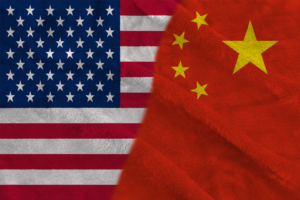Many businesses rely on Chinese suppliers for manufacturing in today’s globalized economy. However, communicating with Chinese suppliers can be challenging due to language and cultural barriers and differences in business practices and expectations. In this context, Supply Chain professionals play a crucial role in ensuring that inquiries to Chinese suppliers are complete and accurate and that the information provided is clear and understandable.
Providing complete and accurate information to Chinese suppliers cannot be overstated. Chinese suppliers rely on the information buyers provide to produce their products. Any inaccuracies or misunderstandings can result in significant delays, quality issues, or even the production of products that do not meet the buyer’s requirements. This can lead to wasted time, resources, and money and damage the buyer’s reputation and brand image.
One of the critical challenges of communicating with Chinese suppliers is the language barrier. Many Chinese suppliers do not have a strong command of English and may struggle to understand complex technical terms or industry-specific jargon. As a result, Supply Chain professionals must ensure that the information they provide is clear and concise, avoiding technical terms or jargon that may be difficult for the supplier to understand. This can involve using simpler language, providing clear definitions of technical terms, or providing visual aids such as images or diagrams to help explain the product requirements.
Cultural differences can also impact the communication between buyers and Chinese suppliers. Chinese business culture emphasizes building relationships and trust, and suppliers may be reluctant to ask questions or raise concerns that could be seen as confrontational or disrespectful. Supply Chain professionals must therefore make a conscious effort to build a relationship of trust with their Chinese suppliers, providing open and honest communication, and encouraging suppliers to ask questions and raise concerns.
In addition to language and cultural differences, there may also be differences in business practices and expectations between buyers and Chinese suppliers. For example, Chinese suppliers may have different quality standards or production processes than buyers in other countries. Supply Chain professionals must ensure that they are aware of these differences and communicate them clearly to the Chinese suppliers. This can involve providing detailed specifications and requirements for the product and discussing the production process and any quality control measures that must be in place.
Another challenge that Supply Chain professionals may face when communicating with Chinese suppliers is the issue of intellectual property rights. China has been known to have issues with intellectual property infringement, and some buyers may be hesitant to provide detailed information about their products for fear of theft or counterfeiting. Supply Chain professionals must ensure their intellectual property is protected while providing enough information to the supplier to produce the product to the desired specifications.
In addition to the challenges of communicating with Chinese suppliers, Supply Chain professionals must also ensure that they provide complete and accurate information in a timely manner. Inquiries to Chinese suppliers may involve a complex and lengthy process, and delays or inaccuracies in the information provided can result in significant delays or issues with the production process. Supply Chain professionals must therefore ensure that they provide complete and accurate information as soon as possible, and that they follow up with the supplier to ensure that the information has been received and understood.
In conclusion, the importance of Supply Chain professionals providing complete and accurate information for inquiries to Chinese suppliers cannot be overstated. With the correct information and communication strategies, businesses can build strong and




